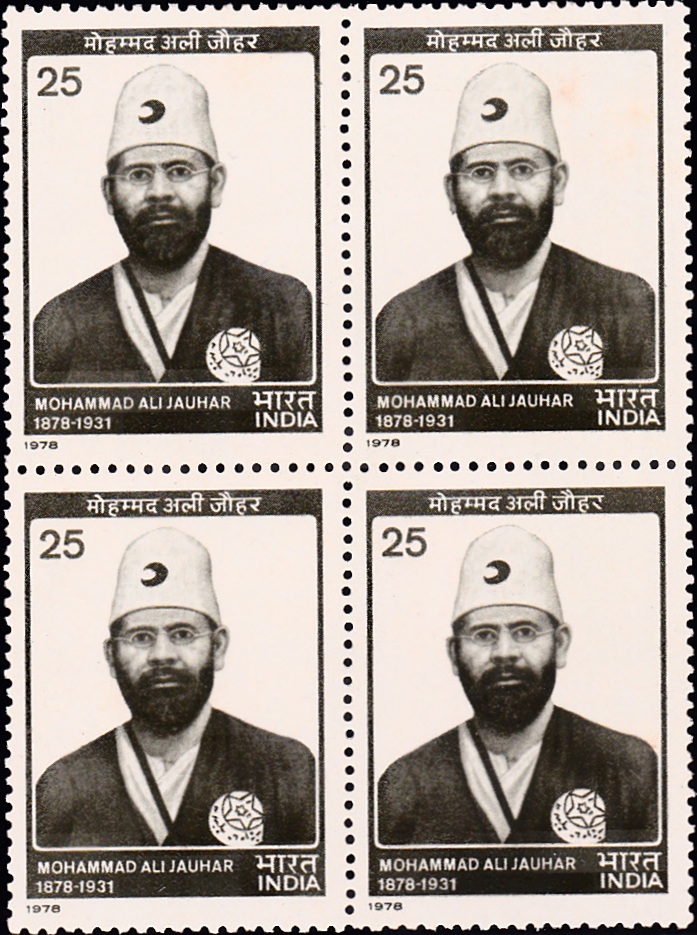
India on Mohammad Ali Jauhar
A commemorative postage stamp on the Birth Centenary of Maulana Muhammad Ali Jouhar, an Indian Muslim politician, one of founders & presidents of All-India Muslim League, president of Indian National Congress (INC) :
Issued on Dec 10, 1978
Issued for : The Posts & Telegraphs Department feels privileged to issue a commemorative stamp on the birth centenary of Mohammad Ali Jauhar, who did yeoman service to cement the bonds of Hindu-Muslim Unity.
Type : Block of 4 Stamps, Mint Condition
Colour : Raw sienna
Denomination : 25 Paise
Overall size : 3.91 X 2.90 cms.
Printing size : 3.55 X 2.54 cms.
Perforation : 13 X 13
Watermark : Printed on unwatermarked adhesive stamp paper
Number printed : 30,00,000
Number per issue sheet : 35
Printing process : Photogravure
Designed and printed at : India Security Press
Name : Muhammad Ali Jauhar
Born on Dec 10, 1878 at Rampur, Rampur State, British India [now Uttar Pradesh]
Died on Jan 4, 1931 at Jerusalem, Palestine
About :
- Mohammad Ali Jauhar was born on December 10, 1878, at Najibabad in District Bijnor of Uttar Pradesh. He was educated at the M.A.O. College, Aligarh, and Lincoln College, Oxford, where he studied Modern History.
- Early in his career, Mohammad Ali established his reputation as an eminent Journalist and a fearless critic of the British Government. In January, 1911, he founded and edited Comrade, a weekly which secured him recognition of his outstanding merit as a journalist in English. The following year he founded Hamdard, an Urdu daily. Mohammad Ali‘s articles in Comrade and Hamdard had such a great impact that the British Government had to intern him and his elder brother and close associate, Shaukat Ali, from May, 1915 to December, 1919.
- During his eventful political career Mohammad Ali brought to bear upon the Indian Independence Movement his tremendous capacities as organiser, journalist, orator and fighter. Under the joint leadership of Mahatma Gandhi and Mohammad Ali the Indian Independence Movement and Khilafat Movement were fused together and the country witnessed unprecedented scenes of Hindu–Muslim unity and a great national upsurge against British rule.
- In 1923, Mohammad Ali was elected as the Congress President, and he presided over the session held in Kakinada. His intimate associate was the General Secretary of the Indian National Congress, Jawahar Lal Nehru. With his characteristic vigour and force he championed the cause of Swaraj.
- He founded a new National Muslim University in 1920, known as Jamia Millia Islamia first at Aligarh, now at Delhi. He was appointed the first “Shaikhul-Jamia“, the Vice-Chancellor.
- At the Round Table Conference held in London in November, 1930, he said : “I would even prefer to die in a foreign country so long as it is a free country, and if you do not give us freedom in India you will have to give me a grave here.“
- Mohammad Ali remained true to his words. He died in London on January 4, 1931, and was buried in Jerusalem.


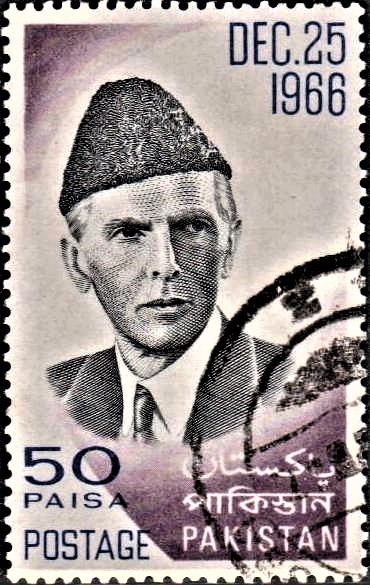
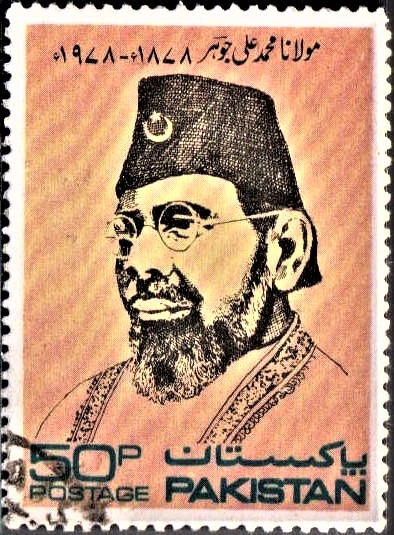
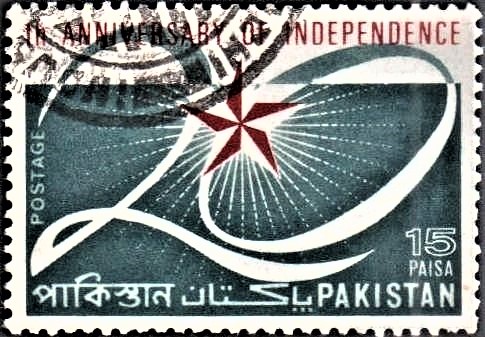

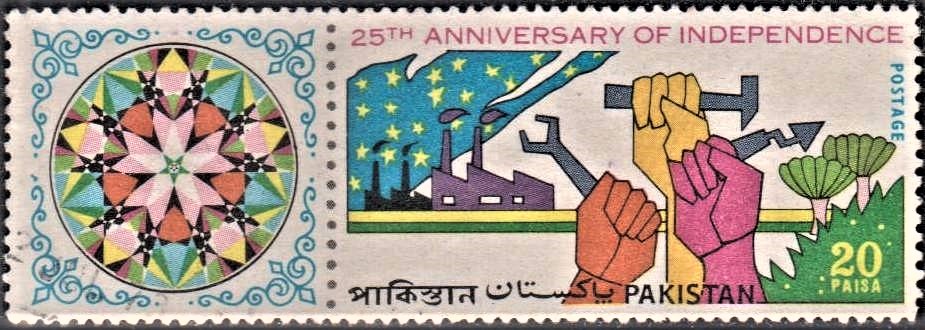

[…] self-government to be the ideal of the Muslim organisation. In that year too, he was persuaded by Maulana Mohammad Ali and Syed Wazir Hasan to enrol as a member of the League, but only after he had received solemn […]
[…] destiny of the sub-continent. The Khilafat Movement, under the dynamic and inspiring leadership of Maulana Mohammad Ali became a movement of the Muslim masses which paved, in course of time, the way for the Muslim […]
[…] National Muslim College at Aligarh. He discontinued his studies in 1921 at the call of Gandhiji and Maulana Muhammad Ali and left for Malabar to join the Khilafat and Congress […]
[…] broadening its impact. The newspaper featured writings by eminent figures such as Motilal Nehru, Maulana Mohammed Ali and Jawaharlal Nehru in its first issue. Over time, it published influential works, including […]